For fans of synth pop, and any kind of electronic music, the name Gary Numan needs no introduction. Bursting onto the music scene in the late 1970s backed with song after song that pushed the boundaries of what synthesizers could do in the realm of popular music, Numan has been a trendsetter for most of his life. A massive fan of his music myself, I was able to sit down with him over Zoom and spend some time talking about what’s next for him, including his upcoming US tour, re-recordings of his first three industrial-inspired albums, and where to go following last year’s Intruder album. A ticket link for his upcoming San Francisco show at Bimbo’s 365 Club is included at the end of the interview.
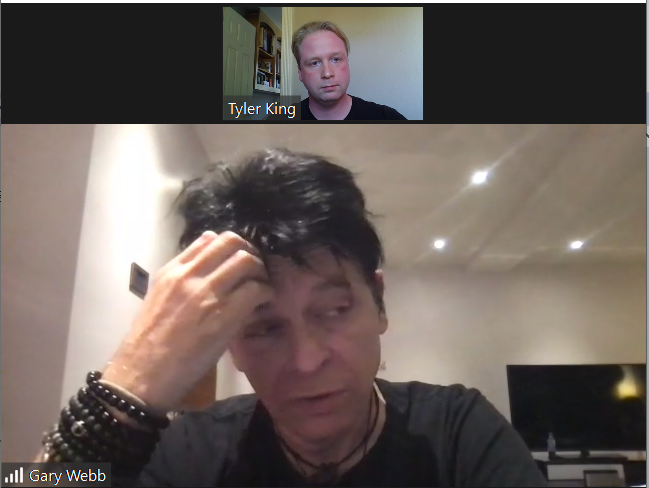
Tyler King: Hello Gary!
Gary Numan: Hello Tyler, how are you doing?
TK: I’m good, I’m good. How are you?
GN: I’m doing pretty well myself.
TK: First of all, I wanted to congratulate you on playing Wembley Stadium for the first time in just over 40 years! How was it?
GN: It was an enormous moment, and I had an enormous sense of pride and accomplishment, knowing that it had been a long journey to reach that point again. A very long journey to get back to that level. But I feel I did really well, and I did enjoy that day very much. It didn’t really overwhelm me until about an hour before… and then it did. I was really struggling, I broke down. My dad came in and him and my wife Gemma got me through it. I was crying like a baby, really. And it had nothing to do with stage-fright, I think it was just the enormity of dreaming of that moment for so long, and then it finally arrives and you’re desperately wanting to not make a mess of it. There was, you know, 40 years of pent-up frustration, and now it’s all good. But something you’ve wanted so badly for so long, you’d think it would be impossible to live up to that expectation you set for it, but it really was. It was absolutely stunning. From a career point of view, it was the best night of my life. No question.
TK: I read your recent autobiography, and after reading about your career struggles of yours throughout the 1980s, I couldn’t imagine how validating the experience of returning to Wembley must have been.
GN: From my point of view, my albums have been selling better and better in England and throughout Europe, and that’s the focus, you know? The albums. But for me, because that was where I walked away from touring for a few years in 1981, Wembley for me was a symbol of a genuine career recovery. And so it really did mean the world. It became almost like the holy grail, it became probably more than it deserves to be. For other people, Wembley might just be another gig because they might get to play it all the time. And for me it wasn’t. And you just want to enjoy it. You don’t have that many key moments in your life. And so you don’t want to be all [imitates crying]. You want to be in the moment so it doesn’t get ruined, you want to let it all sink in and just enjoy it. But now I’ve done it, maybe next time I’ll do two nights, or go even bigger. As important as it was, and for as much of an achievement as it was for me to try to get back there, it’s not the end of my line. Ambition doesn’t stop at Wembley. There are bigger places, and you can keep going. And I’m still ambitious. I want to do more and do better.
TK: Speaking of that, you are about to embark on a second leg of the Intruder Tour here in the US. How are you feeling about these shows coming up?
GN: I’m more confident than I was on the first leg. The first leg was very fraught. COVID was definitely still a huge concern, and it still is, but the first leg was 31 or 32 shows, and that’s an incredibly long time to keep everyone harnessed together and avoid COVID. I didn’t see anyone being silly, everyone was taking the proper precautions. Everyone was vaccinated, and I still did meet and greets, but everyone had to be vaccinated with proof of it. We upset some people, but, you know, that wasn’t sprung on them overnight.
And I think what happened was, we did two shows in Detroit on the same day. Two sets in this small venue. People very close. And I think that’s where I got COVID. And it was always a risk. When you’re doing shows, and you can’t put in barriers to keep people further back, and when you’re the singer, you’re up front and not wearing a mask because otherwise you can’t sing, and if someone in the front row has COVID… you’re gonna get it! And when we got it, it was just as disruptive and damaging as we thought it would be. So doing this second leg feels great because we get to do all of the shows that we unfortunately had to miss, as well as add a few more in to make it even more exciting. We’re going back to some places that we particularly love like San Francisco and LA. I feel far less worried that we can get through a 10-date tour with nothing happening.
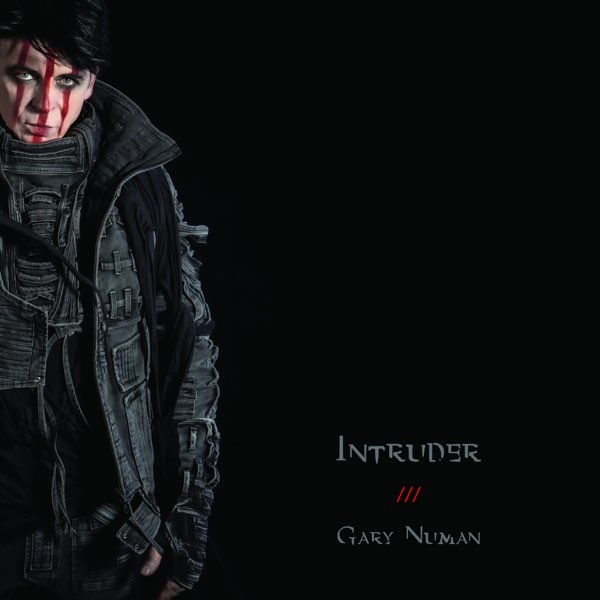
TK: Will there be anything different about these shows in terms of the setlist? Any new songs that might not have been played last time around?
GN: Yeah. Definitely. We were moving the set around a lot. Every single night on the US tour before, and maybe more-so the British and European tour, we were changing around five or six songs every night. That’s about a third of the set. So we rehearsed a huge amount of songs so we had this large selection of songs that we could pull from every night. I organized it in a certain way so song three, for example, would be a song from 1980. So one night we would do “I Die: You Die” and the next night do “We Are Glass,” so we were always replacing a song with another one from the same era with the same feel to it. Even though the songs might change, the flow of it was always consistent. But I think we could have done more. We certainly could have played a lot more of Intruder than we did; I think we only did three or four songs on that first leg, and there was a lot more we could have done. I also think we could have rotated things a lot more… aggressively. We definitely learned a lot from that first US tour, and more so moving into Europe and Britain, and I think that we can do better this time around. Not that what we did the first time was bad! I just mean we can make it more variable and unpredictable.
TK: I’m going to go out on a limb and assume that, with this year being the 30th anniversary of its release, us fans can’t expect to see anything from Machine + Soul in the setlist?
GN: [laughs] Not this year, not any other! [laughs]
TK: How must that feel, looking back and thinking that 30 years ago might well could have been the death knell of your career?
GN: Well, I thought it was. I really did. Even right after I released Machine + Soul I regretted putting it out. I should have waited. But there’s lots of other factors at play when you release an album. There’s financial: you have to pay your mortgage, put food on the table, that kind of thing. I couldn’t just sit back and wait for better songs to come along, because I was going to go bankrupt and I was going to go under. Confidence is another one… I went through a two-year period where I didn’t write a single song… Actually, you know, that’s a lie: I wrote a shitload of songs, but I didn’t keep a single one. I erased everything. Once your confidence is gone, it’s like a downward spiral, as Trent Reznor would say [laughs]. And it just gets worse, and nothing you do seems good enough. And it might actually be good enough, but your headspace is so negative and you’re waiting to come up with the best thing you’ve ever done. And whatever you come up with might not be, but it might at least be good, but you can’t see it and hear it, so you get very aggressively anti- the things that you’re doing. And so I was in that mindset, and I erased everything. Looking back on it, I regret it, because there might have been one or two songs, or more, that could have been quite good had I come back to them with a different mindset and a different attitude.
But a good thing about Machine + Soul is that it made me realize how bad things had gotten. It made me realize that my attitude sucked. Completely. But I did think that my career was pretty much over, and I decided that whatever I would work on next would be completely different, and it did end up being a very different record. My wife Gemma introduced me to a lot of new music I hadn’t heard before and it was so very inspiring. And I went back to making music with a very different attitude, and I decided to do everything myself. I had been taking myself out of my music increasingly with each new album I had been putting out, thinking that I was the weak link musically. I don’t think I sing very well, I don’t think I can play very well, so I saw that as the thing that needed to be taken out. And Gemma convinced me, over months or maybe a year, that the bit that I was taking out was the bit that the fans wanted. She said, “You might not be the best singer in the world or the best player, but you have a certain way of doing those things that nobody else has. And that’s what makes your music yours, and that’s what people want to hear.”
So I begrudgingly took that advice and I went on and made Sacrifice, which is a much better record. I really enjoyed making it, it helped me rediscover my love of making music that I had when I was a teenager. When I made Sacrifice I didn’t have a record contract and I wasn’t sure if I would ever get one again, so I felt that I was done for. I had massive debts, I was in huge trouble financially. So for me, Sacrifice was a hobby album. I didn’t think it would ever come out, and that my career was finished. I was thinking about what I would do with my life since my career was over. Which job I would get that would have the minimum amount of humiliation when people realized who I used to be.
Then I put out Sacrifice on my own Numa label, and it helped me to turn a corner. It did better on the charts, fans started coming back out to the shows, and it felt like things were going in a much better direction. But more importantly, I can say that I loved making it. It felt like my imagination was back, my creativity was back, and all of those elements of me that were missing from Machine + Soul were back. Although I did make a big fuck-up of the mastering of it, but that was my fault. I tried to master it myself because I didn’t have any money to hire someone else to do it, and I didn’t realize that I was actually going a little bit deaf then! It’s gotten a lot worse since then; I can’t mix my own albums now and I can’t hear for shit, really. And I couldn’t then, but I didn’t realize it! The mixing wasn’t that bad, but it was the mastering that I really fucked up. So it’s just this horribly waffley thing. So we’re doing that album again, actually.
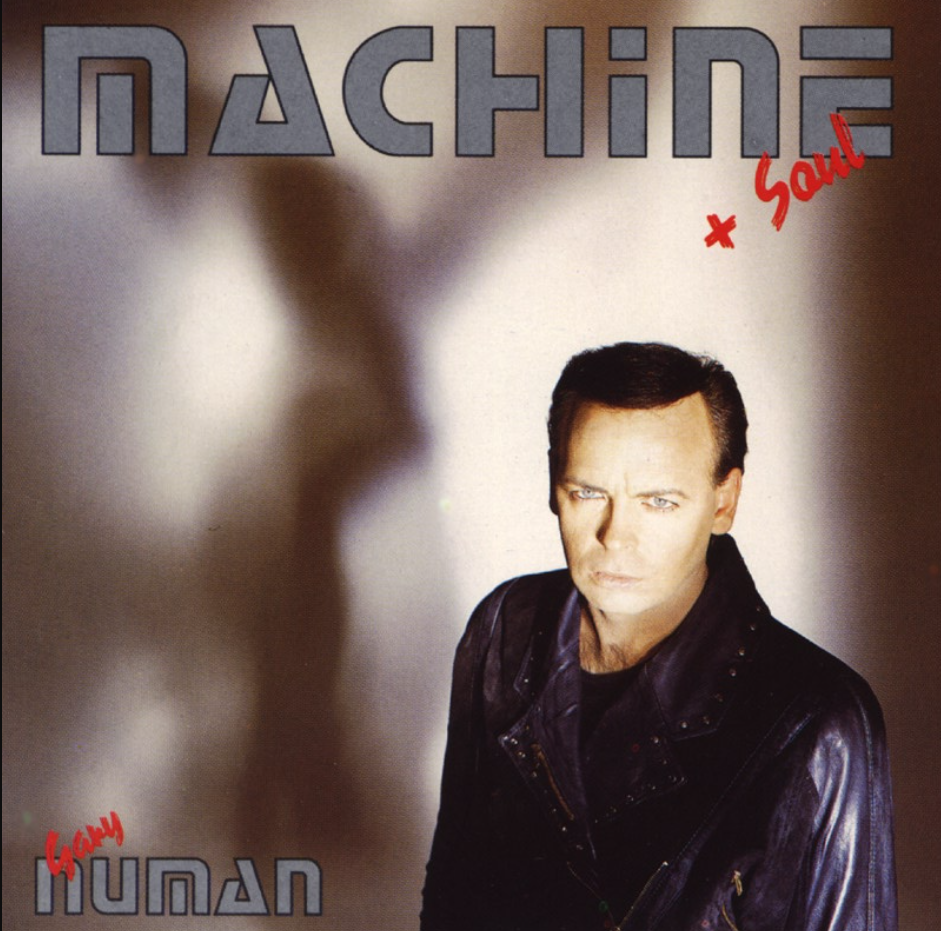
TK: That was actually something that I wanted to ask you about. You and your collaborator Ade Fenton announced that you were rerecording new versions of 1994’s Sacrifice, 1997’s Exile, and 2000’s Pure albums. I definitely do agree that Sacrifice has a certain sound and mood to it that Exile and Pure don’t. I mean that in a very complimentary way!
GN: [laughs]
TK: Sacrifice is actually one of my favorite albums of yours! How is the rerecording going, and about how soon do you think us fans will be able to hear the finished product?
GN: It’s going really well actually. It’s pretty much all done. I have a few more vocals to do when I get back from the tour in the middle of September, and the mastering is already booked in, so we need to make sure that I get those vocals done. I think by the middle of October it will be done musically and mastered, and then I need to figure out the artwork for the three albums. I don’t want to just recreate those album covers, so we might do a collage of the three if we end up releasing it as a box set. But the real problem is when to release it, because there’s a massive delay for getting vinyl pressed right now, and it’s making it maddening trying to schedule anything. A lot of the big record labels are now actually buying chunks of time at these pressing plants to ensure that certain things will arrive on time, so it makes it very difficult to determine exactly when they’ll be out. I might have to talk to my label BMG and see if I can buy into their scheduling somehow [laughs]. So it’s hard to announce an album or play gigs around an album at this particular moment because you just don’t know when it will be out now. But they are almost ready, and then we’ll see what to do about them.
TK: So does that mean that there are already discussions to potentially do a “retro” tour for those three albums?
GN: I wouldn’t say it would be a “retro” tour, although I suppose…
TK: Maybe call it a “throwback” tour instead?
GN: You know, I hadn’t even thought that it would be seen like that! [laughs] It’s been a long time, hasn’t it?
TK: 28 years since Sacrifice came out!
GN: [laughs] Damn! You know what? For me, “retro” was everything before Sacrifice! No matter how long ago it was, that was just how I always saw it! That makes it a bit awkward!
TK: Oh no!
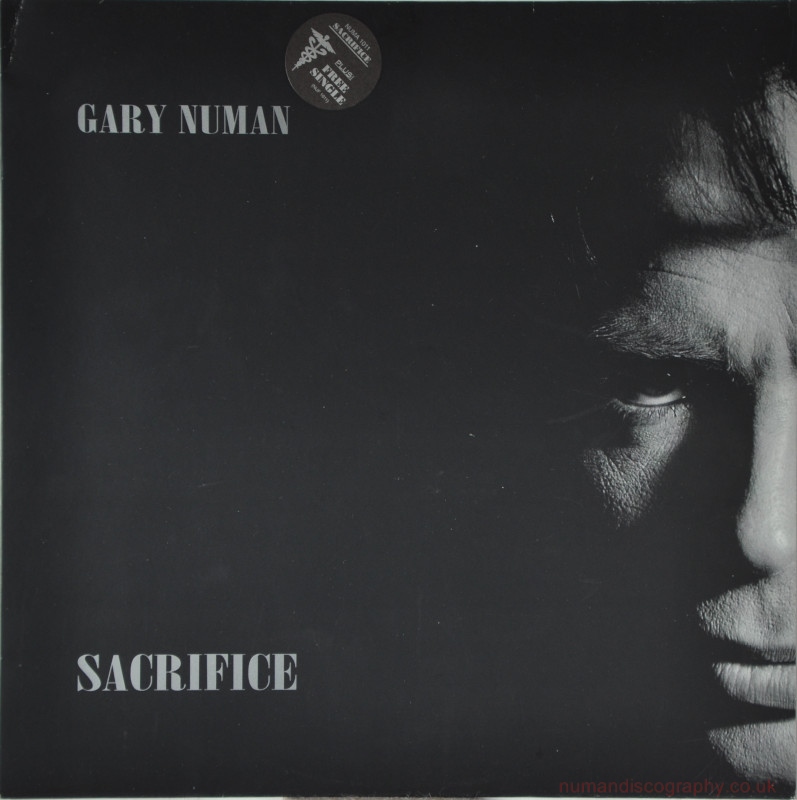
GN: [laughs] But yeah, we were thinking about doing a series of shows to give those albums a push. It’s very difficult because as soon as I finish those vocals, I have to start working on the next album after Intruder, and that’s the important one.
TK: Of course.
GN: That’s the one that really needs to matter. There’s a company I’ve been talking to recently about reissuing some even older material of mine, from further back in my back catalogue. Berserker and The Fury, that era of albums.
TK: That was something else that I wanted to ask, actually. You’re just answering all of my questions before I even get to ask them!
GN: [laughs]
TK: You’re making my job so easy! Berserker, The Fury, Strange Charm, and so on, a lot of those albums either aren’t available on the “big streaming services,” or they’ve never been re=pressed or reissued since they first came out. Sacrifice, for instance, sells for a couple hundred dollars on the used market nowadays.
GN: Is that right?
TK: Yeah. I was lucky, I found my copy at a shop for a lot less than that. Even Machine + Soul sells for about two hundred dollars online.
GN: [makes a face]
TK: Yeah!
GN: I don’t know why anyone would pay that much for Machine + Soul.
TK: I know! But there’s definitely a market for those albums. Beggars Banquet has reissued your albums up through Warriors over the last few years, but I think that there’s a substantial portion of your output that isn’t readily available for some people, unless you’re able to go to a used record store and hope that they have those albums of yours.
GN: I think that’s true. And it’s my own fault. I’m just really, really bad at working on things that have already been out. My entire thought process, from when I wake up to when I fall asleep, is about what I’m doing next. And I willingly admit that I’m really, really bad at looking back at things that happened in the past. This upcoming thing with Sacrifice, Exile, and Pure… I was always aware with Sacrifice that I did a bad job mastering it, and it’s always bothered me, so I thought, ‘Let’s redo it.’ But not just remix it or remaster it, let’s just rework it and let Ade do his magic on it so we can hear what it should have sounded like.
Exile and Pure, same thing, really. I don’t think I messed them up at all, but I think it would be interesting for me to hear how different they could be with Ade working on them. And also with Exile and Pure, they were signed over to a company called Eagle Rock, who have them for in perpetuity. So with those two, it’s also a way of getting ownership back of those albums, albeit with new versions. Unfortunately there’s a slight bit of mercenary decision-making with those two.
Those three albums were my first three more industrial-sounding albums, and I would like to hear what they would sound like with an Ade Fenton involvement, because he’s done a phenomenal job with the more recent albums. I thought that the idea to put some shows together to promote them would just be really good fun.
As far as the other albums go with Berserker, The Fury, and so on, the truth is that if it was left to me, nothing would ever happen with those records. You know, I want to focus on the new album and the re-recordings of those other three albums, but my thought process is always on where to go next: what my look will be, what I’m going to sing about, what’s bothering me at the moment and if that’s what I want to write about. I’ve just done two climate change-related albums, one of them more indirectly, so do I want to do that again? Do I want to do something different? And that’s what I’m thinking about, I’m not thinking, ‘Oh we should really do something about Berserker.’
But when a company comes along that really likes those albums and is willing to put money into them and redo them, and wants to do a number of them, I think, ‘Well, it’s not going to happen any other way. So let’s go for it.’ I think it will be good for fans, because like you said, these things are just sitting there, wasting away. And it’s a way to make my catalogue of music more vibrant.
There was a documentary about me that just aired about a week ago here in England, and almost immediately Savage, Intruder, and my most recent live album all shot up in the charts. So when you can create a certain amount of interest in one part of your career, it definitely spills out into others. You want to generate interest in your work. I think to have a really good back catalogue push going on at the same time that I have the new versions of Pure, Exile, and Sacrifice coming out, and I’m working on the new album, it’s a really healthy position to be in.
TK: I do have to make one request: If you do end up doing shows for those three rerecorded albums, please do at least a couple of shows in the United States!
GN: Oh yeah, I want to. I really do. If I was to do some shows, it would definitely be in the United States, Europe, and Britain. Maybe a couple shows in Canada also. It wouldn’t be a major tour, but I do think that I could do about half a dozen key cities. It would also fit in well between the release of Intruder and whatever the next album will be, when there’s that lull between “proper” new albums. At this rate it might be a couple of years before the next album comes out and the touring for that one starts, what with vinyl delays and all that, but hopefully we’re post-pandemic by then, and hopefully I’ll be able to tour as the album comes out instead of having to wait a year after it’s been released.
TK: You have to keep that momentum going.
GN: Totally, and it’s impossible to keep momentum going when you’re touring for an album a year after it’s come out like I had to do with Intruder. The touring has been great and I love it, but it just felt wrong in a way.
TK: It’s not the same.
GN: No, it’s like you’re trying to rekindle an old relationship that’s faded away [laughs].
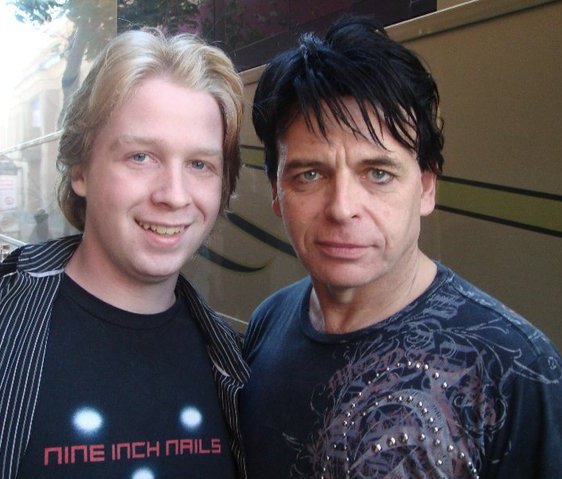
TK: I know that you’re not a big fan of nostalgia, but if you don’t mind indulging me for one question. With last year being ten years since his passing, I’m curious to know what it was like working with Mick Karn [of Japan] on the Dance album.
GN: Well as a musician, I thought he was amazing. Unbelievably inventive and fascinating to work with. In the studio you had absolutely no idea of where he was going to go and what he was going to come up with next. Nothing about the way he played was predictable. At all. And it was brilliantly different. Even with other really, really great musicians, they tend to operate within certain areas: you know it’s going to be great, but you also know what kind of “great” it’s going to be, because that’s what they do. With Mick, you didn’t have that. I knew it was going to be great, but I had absolutely no idea of what he was going to do, and that made it really different and really exciting. It was a pleasure to work with him.
As a person, I don’t think I ever really got to know him. We hung out a lot, and I thought I knew him. But then something would happen and I’d think, ‘I don’t know him at all.’ So I lost touch with him. You know, he was also a brilliant sculptor.
TK: I had no idea.
GN: Oh, he was madly genius with that as well. He was a seriously creative all-around artist. But a few things happened and we got on with our lives and we lost touch. I heard about ten years ago that he was sick, very shortly before he died, so I regrettably didn’t get a chance to reconnect with him at all. So as a person, I don’t feel I knew him that well, so I couldn’t say much about him in that regard. But from a musical and creative point of view, I just loved him. It was a privilege to work with him. A genuine, off-the-wall genius when it came to playing.
TK: You mentioned that you’re working on a new album. I’m wondering what you can say about that so far. How many songs you have done for it, if it has a similar direction as Splinter, Savage, and Intruder, or if you’re going in a different direction this time?
GN: Well the truth is, I haven’t started on it at all! I’m thinking about it a lot [laughs]. I’ve not written a single complete song, but I’ve written some tunes and melodies and I do have quite a few big grooves I’ve come up with, sample-based loop things. I’m certainly not lacking in movement on it, but I certainly don’t have any finished songs yet, I don’t have any finished lyrics yet, and I certainly don’t have any idea of what it’s going to be about just yet.
I will be very, very surprised if it’s going to be a huge step away from what I’ve been doing since Sacrifice. I’m very happy in that area of music: heavy electronics, big choruses, huge dynamics. I like it and I enjoy writing those songs, and I feel like I’ve found a musical area that I can dwell in. And I can still progress and move forward and find new things in those areas.
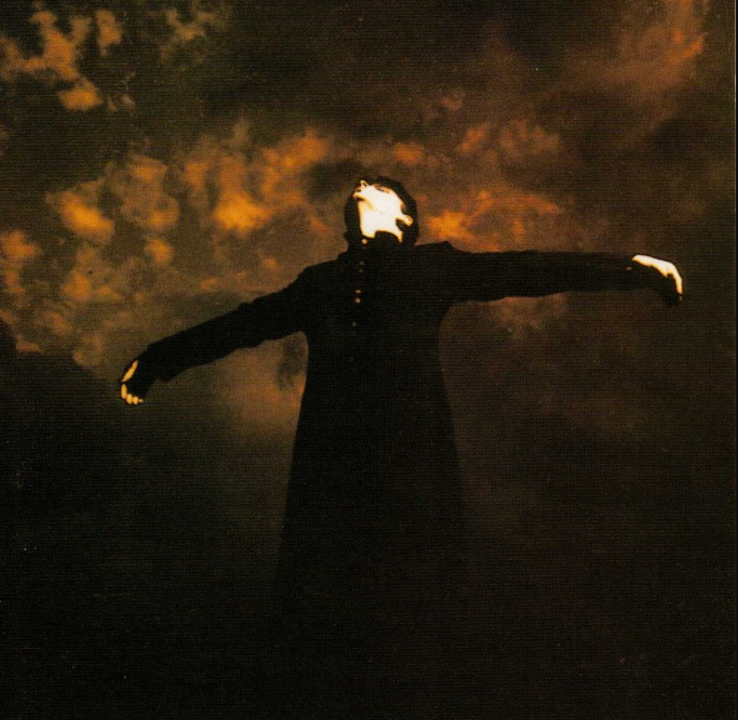
TK: Jagged doesn’t sound like Pure. Splinter doesn’t sound like Dead Son Rising. There are differences between those albums.
GN: Yes. But I think that if you were to give all of those albums to someone who doesn’t know the genre and asked them to describe each one using four words, they’d use the same four words for every album. But I agree. I mean… I’d like to agree [laughs]!
TK: I would hope so!
GN: If you were to take a song from Pure and put it on Intruder, it would stick out like a sore thumb. All of those albums have their own style, their own vibe, and the songs all sound like they belong together. They don’t interconnect that well, except for in a live setting. I’m sure with the next album that it will have that same kind of variation. I’ll find another part of that musical area I’m comfortable in and it will sound like a separate album in it’s own right. I suspect that to happen because that’s simply the kind of music that I like to make. In the first fifteen years of my career, with each album I was trying to find different things: different sounds, different instrumentation, etcetera.
It wasn’t until Sacrifice, Exile, and Pure that I consolidated everything into what I like to do. I love being in the studio, I love these sorts of sounds, and I love doing those songs live. It’s so amazing to be up onstage with the power of some of these songs just ripping through the crowd. And I’m happy in that area. It was around the time that I met Gemma that I started getting back into doing what I loved doing and making the music that I loved making. So I’m faithful to my music, if that makes sense.
But I don’t want to release an album and have people go, “oh well it’s just another Gary Numan album.” So there is possible variation within the genre, and I think that with electronic music especially the ability to broaden that genre and to keep finding new ways of working within it and making records that sound different, it’s very appealing. And I want to keep trying to do that.
TK: Well I’m excited to hear it whenever it’s finished and the record is pressed and arrives on my doorstep. And I’m sure I’ll see you however many times I can on the tour you do for that.
GN: [laughs] Well thank you very much, thank you. I appreciate that.
TK: I’ll see you at Bimbo’s in San Francisco in just a couple of weeks!
GN: Looking forward to it, actually. Really looking forward to it. We played there once before and it was great, and the people there were just lovely.
TK: I just saw Howard Jones and Midge Ure there actually, a few weeks ago.
GN: I saw a video clip of that! Did Midge do a lot of Ultravox songs in his set?
TK: It was almost exclusively Ultravox songs except for a couple originals, “Fade To Grey,” and a cover of Bowie’s “The Man Who Sold The World.”
GN: Was it his era, or John Foxx’s era?
TK: It was his era. I know you’re a much bigger fan of the John Foxx stuff!
GN: I am, yeah. Nothing against Midge Ure, and I’m happy that the band did better commercially with him, but personally I think the aura around John Foxx was very different and much more interesting for me.
TK: Definitely. The band had more of an edge to them at that time.
GN: John Foxx is a very intelligent and interesting man. He’s very analytical. He’s able to look at music in ways that just go completely over my head. He sees connections and journeys through music, which is fantastic to listen to. I never think about music that way, I just have my head down working on songs, and he could be talking about why I wrote a specific melody and why one of my songs could have evolved from another and I would be going, “Well fuck me, I didn’t even think about that! And I wrote the bloody thing!” I love him. He’s such a cool man to talk to. I never met Midge Ure, believe it or not. Not once. Maybe he’s the same, but maybe not.
TK: Just live with the idea in your head of how he is.
GN: I’d like to meet him one day, because he’s a key figure in electronic music in some ways. So it would be nice to have a chat with him someday.
TK: Well, I want to say thank you again for taking the time to talk and making the music that you’ve made and keeping it going.
GN: Thank you. Thank you.
TK: I’ll see you next time I see you.
GN: See you then!
Tickets for Gary Numan’s upcoming show at Bimbo’s 365 Club on September 1st can be purchased here.


